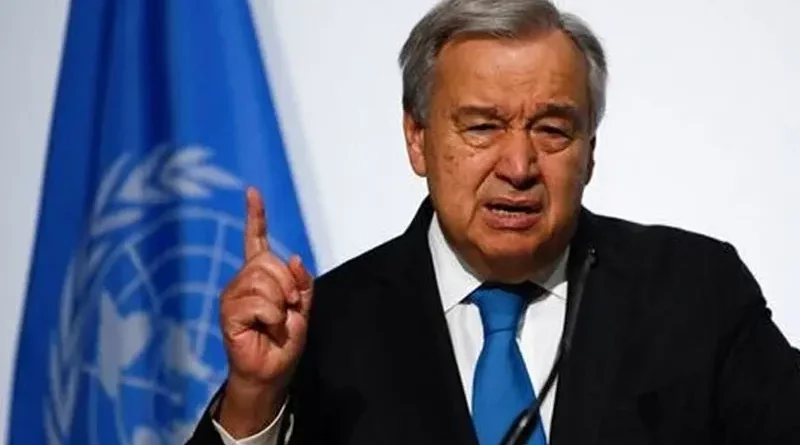UN chief calls for ‘united’ response to AI threats
UN Secretary-General Antonio Guterres called for a “united, sustained, global response” to the threats posed by artificial intelligence (AI) during the inaugural AI Safety Summit held at Bletchley Park, north of London.
The two-day summit, which included representatives from G7 and EU countries, as well as companies like OpenAI, Google DeepMind, and Microsoft, resulted in a landmark agreement on a new safety testing regime for “frontier” AI models.
Guterres warned of the possible negative consequences of AI on jobs, culture, and geopolitics. He emphasized the need for a global strategy based on multilateralism and the participation of all stakeholders to address these issues.
British Prime Minister Rishi Sunak, who announced that renowned AI academic Yoshua Bengio would lead a team producing an inaugural report on AI safety, highlighted the importance of collaboration in making AI the best thing to happen to humanity.
The summit featured prominent figures, including Elon Musk, and concluded with a commitment to hold further AI safety summits in South Korea and France.
AI has raised concerns about job losses, cyberattacks, and the potential loss of human control over AI systems. The international community is increasingly recognizing the need for coordinated action to ensure the safe and responsible development of AI technology.
The G7 recently agreed on a non-binding “code of conduct” for companies developing advanced AI systems, while the US and other nations are taking steps to regulate AI domestically.
London and Washington this week both announced the establishment of institutes that will carry out that work and identify and mitigate other risks posed by AI.
Harris told delegates of US efforts to help distinguish authentic government-produced digital content from AI-generated content, and to prevent the use of discriminatory AI algorithms, her office said.
UK Foreign Secretary James Cleverly told AFP earlier that countries were responding to the urgent need for a coordinated response.
“We have to move at a pace that matches the pace of technology change, we don´t have a choice,” he said.
“And actually what we´re seeing is a willingness (ness) globally, at both government level and within the commercial world, to move very, very quickly.”
Musk described the summit as “timely”, acknowledging AI is “one of the existential risks that we face”.
“It is potentially the most pressing one if you look at the timescale and rate of advancement,” he said.
G7 powers agreed Monday on a non-binding “code of conduct” for companies developing the most advanced AI systems, while US President Joe Biden also issued an executive order regulating them domestically.
In Rome, ministers from Italy, Germany, and France called for an “innovation-friendly approach” to regulating AI in Europe, as they urged more investment to challenge the United States and China.

